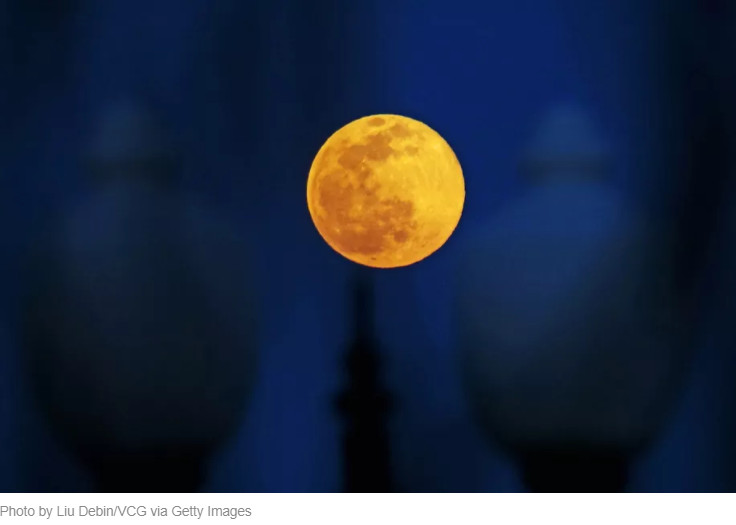
Science
Russia and China are collaborating on a lunar space station.

The space agencies of Russia and China declared Tuesday that they had signed an agreement to develop and operate on a "International Scientific Lunar Station" orbiting the Moon. The two space powers had been in talks for months as Russia considered whether to join NASA's Gateway program, a competing lunar space station that will be constructed by a group of countries in the next decade.
According to Roscosmos, the International Scientific Lunar Station on which Russia and China will collaborate is a complex of experimental research facilities created on the surface and/or in the orbit of the Moon."According to the announcement, it will be designed to enable a number of scientific experiments, including “the possibility of long-term autonomous activity with the promise of a human presence on the moon.
China has been courting foreign support for its plans to build facilities on the Moon, similar to NASA. It has also launched several Chang'e robotic missions to the Moon, including the first landing on the Moon's far side and a sample collection mission in December.
The lunar space station agreement, signed digitally between China's space chief Zhang Kejian and Russia's space chief Dmitry Rogozin, is the latest step in Beijing's attempts to explore the Moon alongside rivals like NASA, which is prohibited from cooperating with China under a law passed by Congress in 2011.
Russia has been hesitant to expand its space alliance with the US to the Moon, despite a decades-long collaboration on the International Space Station.
Under the Trump administration, NASA's Artemis program has stepped up its efforts to send astronauts to the Moon. Part of the initiative included spearheading the Artemis Accords, a multilateral pact aimed at establishing space conduct norms. The Artemis Accords have been ratified by nine other countries so far, but Russia is not one of them, since the United States attempted to remove Moscow from early talks on the Accords last year.
NASA has reached agreements for work on the Lunar Gateway, a proposed space station orbiting the Moon, with the European Space Agency, Japan, and Canada. NASA had asked Russia to assist in the construction of the station, but Moscow had determined that NASA's offer for Russia to have an astronaut was unreasonable.
NASA asked Russia to help develop the station, but Moscow determined that providing an airlock for Gateway was "impractical," according to a Roscosmos spokesperson in December.
NASA provided Roscosmos with the Russian-American Memorandum of Understanding for cooperation on the Gateway project. According to the MoU, Roscosmos has agreed to provide a crew airlock module, a spokesperson said. After reviewing the draft paper, the Russian side determined that participation in the amount proposed by the US partners was impractical.
Russia quickly shifted its attention to China's lunar aspirations. According to the spokesperson, cooperation with China became one of Russia's "top priorities" last year.
According to a statement from the China National Space Administration, the Russia-China agreement authorizes joint construction of their own lunar space station, which includes planning, demonstration, design, development, implementation, and operation of scientific research station projects, including project promotion to the international aerospace community.
Russia's military-civil space agency has been investing in new launch infrastructure amid a domestic budgetary atmosphere of cutbacks, but it was uncertain what concrete technological contributions it would make. Russia's space budget is ranked third in the world, behind the US and China.
China also met with CNES, France's space agency, on Tuesday to conduct a status check of bilateral space cooperation between the two agencies, according to CNES. In addition to climate science cooperation, Beijing's Kejian and France's Jean-Yves Le Gall explored other possible areas for cooperation in relation to the Moon and Mars, according to the statement.
